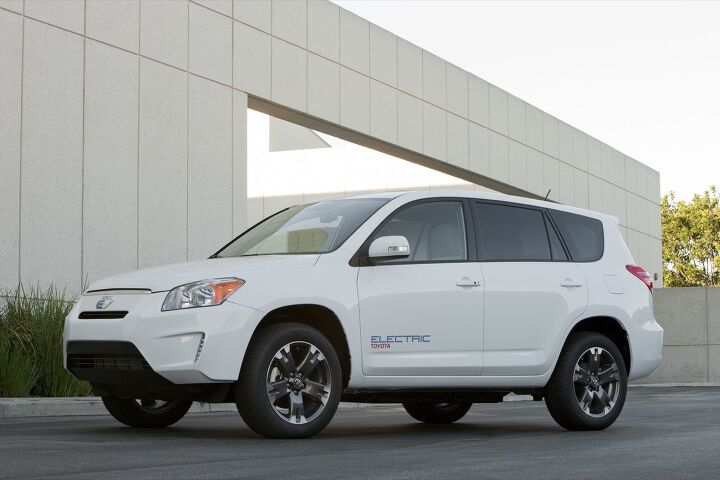Toyota Chairman: Shift to Electric Vehicles Will Not Be Rapid
Mazda is planning for the internal combustion engine of 2050. Toyota is applying the Dynamic Force improvements that worked wonders on the 2018 Camry’s fuel economy ratings to V6 and V8 engines.
And electric cars?
“We’re skeptical there would be a rapid shift to pure electric vehicles, given questions over user convenience,” Toyota chairman Takeshi Uchiyamada tells CNBC.
There is a Toyota electric car in your future, Uchiyamada believes. But more likely than not, it’s not in your near future.
Toyota was and continues to be at the forefront of hybrid development. Through the first seven months of 2017, for example, 49 percent of the hybrids and plug-in hybrids sold in the United States of America were Toyota products, according to HybridCars.com.
Toyota’s hybrid total alone — 126,155 vehicles during that period — was three times stronger than the overall sales total at Volvo, which recently made headlines with a plan that will see all new vehicle introductions involve hybrid or electric powertrains beginning in 2019.
But on the pure electric front, Toyota’s chairman believes a few more breakthroughs are needed on the technological front if battery-powered vehicles are to become fully capable. “I must say up front that we’re not against electric vehicles,” says Uchiyamada. “But in order for electric vehicles to cover long distances, they currently need to be loaded with a lot of batteries that take a considerable amount of time to charge.”
“There’s also the issue of battery life,” Uchiyamada says, who cites battery limitations as a key reason consumers aren’t embracing electric vehicles.
Toyota does not currently offer a pure EV in the United States. The Mirai is a hydrogen fuel cell vehicle. The Prius Prime is a plug-in hybrid with 25 miles of electric range. Those two vehicles account for slightly less than 1 percent of the 1,604,847 total vehicles sold by Toyota in the U.S. through the first two-thirds of 2017.
In the United States, the EV market accounts for 1 out of every 200 new vehicles sold. The overwhelming majority of those EV sales take place at three automakers: Tesla, Nissan, and Chevrolet.
[Images: Toyota]
Timothy Cain is a contributing analyst at The Truth About Cars and Autofocus.ca and the founder and former editor of GoodCarBadCar.net. Follow on Twitter @timcaincars.
More by Timothy Cain
Latest Car Reviews
Read moreLatest Product Reviews
Read moreRecent Comments
- Rrp138519787 If Jeep wanted to re-introduce the Wagoneer name, they just should have named the Grand Cherokee L the Wagoneer instead, and done a little bit more styling differentiation. They could have done a super deluxe version as the Grand Wagoneer. But all Wagoneers would have been the three row version as the primary product differentiation. And would cause less confusion for consumers overall.
- D The only people who have TDS, which I assume is Trump Derangement Syndrome, are the MAGOTS who have been brainwashed to love him. They Know Not What They Do.
- The Oracle The updated Model Y beat this copy to market.
- ToolGuy™ I respect what the seller is doing, but this vehicle is not for me. (Seller doesn't care, has two people lined up already.)
- SCE to AUX How well does the rear camera work in the rain and snow?



































Comments
Join the conversation
"Shift to Electric Vehicles Will Not Be Rapid" Shocking!
Japan Inc is in cahoots with oil companies in exchange for military protection. Japanese fuel cell research -> protection racket.